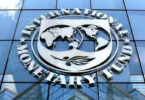F.P. Report
ANKARA: Oil prices dropped on Monday after Saudi Arabia’s decision to cap its prices for Asian markets increased worry over oversupply and expectations about US Federal Reserve (Fed) interest rate cuts remain muted.
The international benchmark crude Brent traded at $78.05 per barrel at 10.58 a.m. local time (0758 GMT), a 0.90% decline from the closing price of $78.76 a barrel in the previous trading session on Friday. The American benchmark, WTI, traded at the same time at $73.02 per barrel, down 1.07% from Friday’s close of $73.81 per barrel.
Prices started the day with bearish sentiment after Saudi Arabia lowered its crude oil prices for its Asian customers by $2 a barrel over requests for more competitive prices against other crude oil suppliers in the region.
The decision by OPEC’s largest oil producer brought its flagship Arab light crude oil to its lowest level in 27 months.
Tempered expectations on interest rate cuts by the Fed also supported price declines. Lower interest rates tend to reduce consumer borrowing costs, which can boost economic growth and oil demand.
Fed Dallas President Lorie Logan warned on Saturday that in order to prevent inflation from rising following a recent decrease in long-term bond rates, the US central bank may need to start boosting its short-term policy rate again.
The strengthening of the dollar further pressured oil prices, as it makes oil more expensive for investors holding other currencies.
The US dollar index, which measures the value of the American dollar against a basket of currencies, including the Japanese yen, British pound, Canadian dollar, Swedish krona, and Swiss franc was trading at $102.90 on Monday at 10.08 local time (07.08 GMT) and increased by around 1.04% since the beginning of the year.
However, tensions in the Red Sea, involving attacks by Houthis and the possibility of an Iranian intervention continue raising concerns about potential supply disruptions and adding on oil prices.
On Sunday, Israel’s military chief Herzi Halevi said that the war in Gaza will likely continue throughout the year, adding that 2024 will be “tough.”
Also, OPEC+ plans to hold a meeting in early February increases supply uncertainties in the market. If the group decides to extend the duration and amount of the supply cuts, it could lead to an undersupplied market and potentially higher oil prices.
In November, OPEC+ group decided to curtail oil production with voluntary production cuts totaling around 2.2 million barrels per day for the first quarter of 2024.
Investors are now awaiting real output cut figures and subsequent actions by OPEC+ as some members of the group may lag to implement cuts adding to market volatility. (APP)







